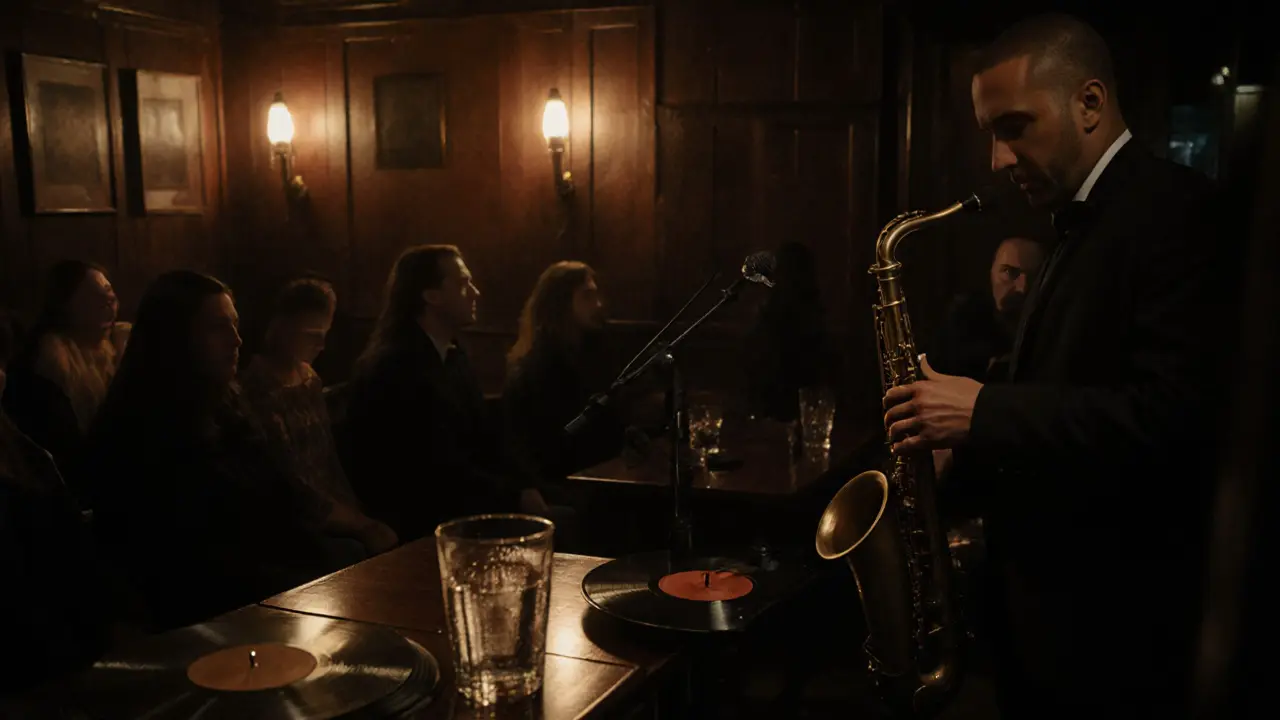
You think you know London nightlife? Clubs, loud music, neon lights, and queues that stretch around the block? Sure, that’s part of it. But if you’ve only ever experienced London after midnight in a packed club, you’ve only seen half the story. The real magic? It’s in the quiet corners, the candlelit rooms, the jazz that drifts from basement venues, and the coffee shops that stay open until 3 a.m. because someone, somewhere, still needs a good cup and a quiet place to think.
What London Nightlife Really Looks Like After the Clubs Close
Most tourists and even some locals think London’s night scene ends when the last clubber stumbles out at 3 a.m. But the city doesn’t shut down-it transforms. By 1 a.m., the party crowds thin out, and something quieter, deeper, and more authentic takes over. You’ll find poets reading in Soho backrooms, musicians jamming in Camden attics, and old-school gin bars where the bartender remembers your name-and your usual.
This isn’t about chasing trends. It’s about connection. The kind you get when you’re sipping a 20-year-old single malt in a room lit only by vintage lamps, listening to a vinyl record spinning slowly, and talking to someone who’s lived in London since the ’90s. These are the spaces where stories are made, not just hashtags.
Why London’s Quiet Nightlife Matters More Than Ever
After years of lockdowns, rising rents, and the homogenization of city centers, these hidden spaces are disappearing. Independent venues are closing faster than ever. But the ones still standing? They’re holding on because people care. Not because they’re trendy, but because they’re real.
Think about it: when was the last time you sat in silence with a stranger and didn’t feel awkward? In a quiet bar in Shoreditch, you can do that. No music blasting. No one checking their phone. Just the hum of the fridge, the clink of ice, and a conversation that doesn’t need to be loud to matter.
This isn’t just about avoiding crowds. It’s about reclaiming space-for thought, for calm, for human connection. In a city that never stops moving, these places are the pause button.
The Different Kinds of Quiet Nightlife in London
London’s non-party nightlife isn’t one thing. It’s many. Here’s what you’ll find when you step off the beaten path:
- Speakeasies - Hidden behind bookshelves, unmarked doors, or even a fridge in a curry house. Think Bar Termini in Covent Garden, where the mixologists know every drink you’ve ever liked-and a few you didn’t know you wanted.
- Live Jazz & Blues Hubs - Places like Ronnie Scott’s in Soho or The 100 Club in Oxford Street. No DJs. No bottles. Just raw talent, dim lighting, and audiences who listen-really listen.
- 24-Hour Coffee & Book Cafés - Bar Italia in Soho has been serving espresso and panini since 1949. It’s open until 3 a.m. on weekends. You’ll find students, writers, and tired nurses sipping coffee in silence. No Wi-Fi. No rush.
- Midnight Book Readings - Libraries like The London Library and independent bookshops like Daunt Books host late-night poetry and short story nights. No alcohol. Just words, warmth, and a few candles.
- Quiet Gin Bars - The Botanist in Marylebone or The Dukes in Mayfair. Over 100 gins, each with its own story. Served with a single ice cube and a thoughtful conversation.
These aren’t gimmicks. They’re rituals. And they’ve been going on for decades.
How to Find These Places (Without a Guidebook)
You won’t find these spots on Instagram ads or TikTok trends. They don’t need to be found-they need to be stumbled upon.
Start by walking. Not with your phone in hand, but with your eyes open. Wander through Soho after 11 p.m. Look for places with no sign, or just a small brass plaque. Check out side streets in Clerkenwell, Peckham, and Dalston. The best spots are tucked behind dry cleaners, above laundrettes, or down alleyways with no name.
Ask the right people. Not bouncers. Not bartenders at chain pubs. Ask the barista at your local coffee shop who’s been there 10 years. Ask the taxi driver who’s been driving in London since 2005. They’ll point you to places you’ll never find online.
And here’s a tip: go on a Tuesday or Wednesday. That’s when the regulars show up. The ones who don’t care about being seen. They care about being heard.
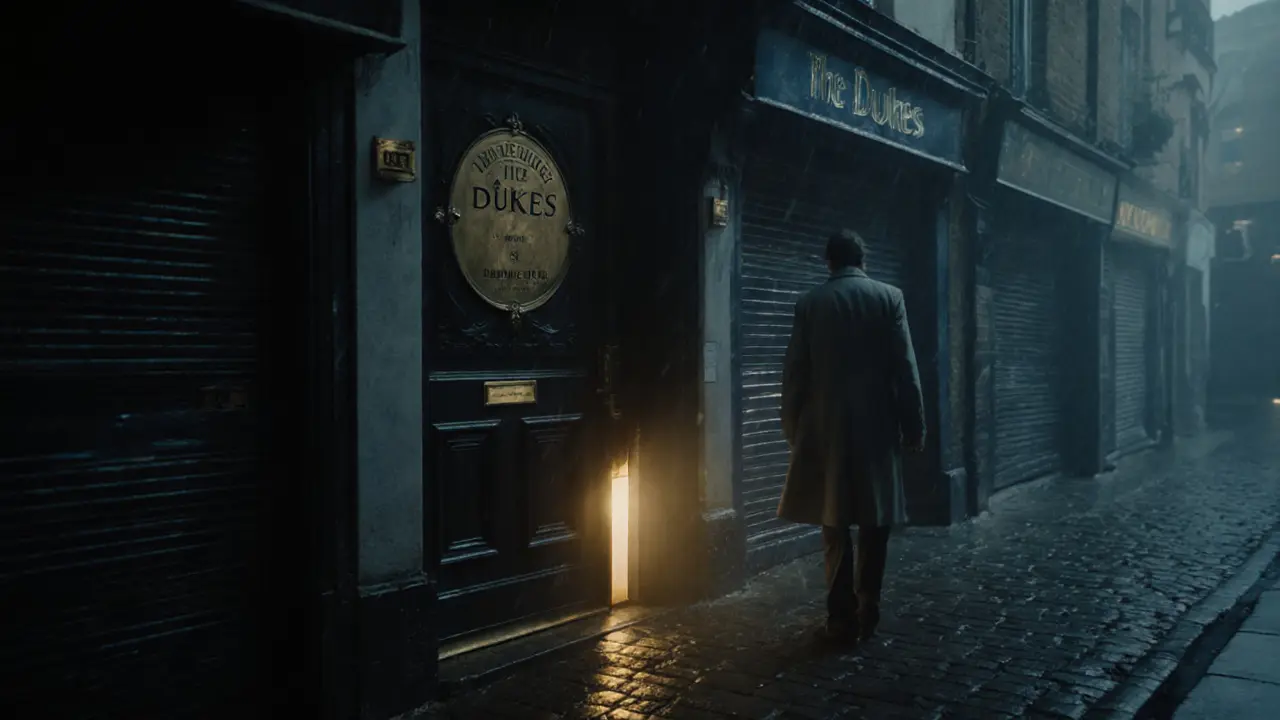
What to Expect When You Walk In
Walking into a quiet London bar after midnight feels different. There’s no bouncer. No velvet rope. No cover charge. Just a nod from the person behind the counter. You’re not a customer. You’re a guest.
Expect silence. Not the awkward kind-the kind that lets you hear yourself think. The clink of a glass. The rustle of a page turning. The low murmur of two people talking about books, or loss, or the weather.
Drinks are slow. Served with care. A gin and tonic isn’t poured in 10 seconds. It’s built-ice first, then gin, then tonic, then a twist of citrus, carefully placed. You’ll wait. And it’ll be worth it.
You might stay for an hour. Or three. No one will rush you. No one will even notice if you leave without saying goodbye. That’s the point.
Pricing: You Don’t Pay for Noise, You Pay for Craft
Don’t expect £5 cocktails here. A good gin and tonic will cost £12-£16. A whiskey flight? £25. A cup of coffee at 2 a.m.? £4.50. It sounds steep-until you realize you’re not paying for a buzz. You’re paying for time. For space. For skill.
Compare that to a club where you pay £15 just to get in, then £12 for a drink, then £20 for a taxi home. You spend £47 for 90 minutes of noise. Here, you spend £16 for three hours of calm. And you leave feeling refreshed, not drained.
Most of these places don’t take cards. Cash only. Bring £20-£30. You won’t need more.
Safety Tips for Late-Night Explorers
London is safe, but walking alone at 3 a.m. in an unfamiliar area? Always be aware.
- Stick to well-lit streets. Even quiet places are usually in busy neighborhoods.
- Let someone know where you’re going. A quick text: “Heading to The Dukes. Back by 4.”
- Don’t assume silence means danger. These places are often safer than crowded clubs. People look out for each other here.
- Trust your gut. If a place feels off, leave. No shame in that.
- Use the Night Tube or night buses. They run every 15-20 minutes on weekends. Safer than cabs when you’re tired.
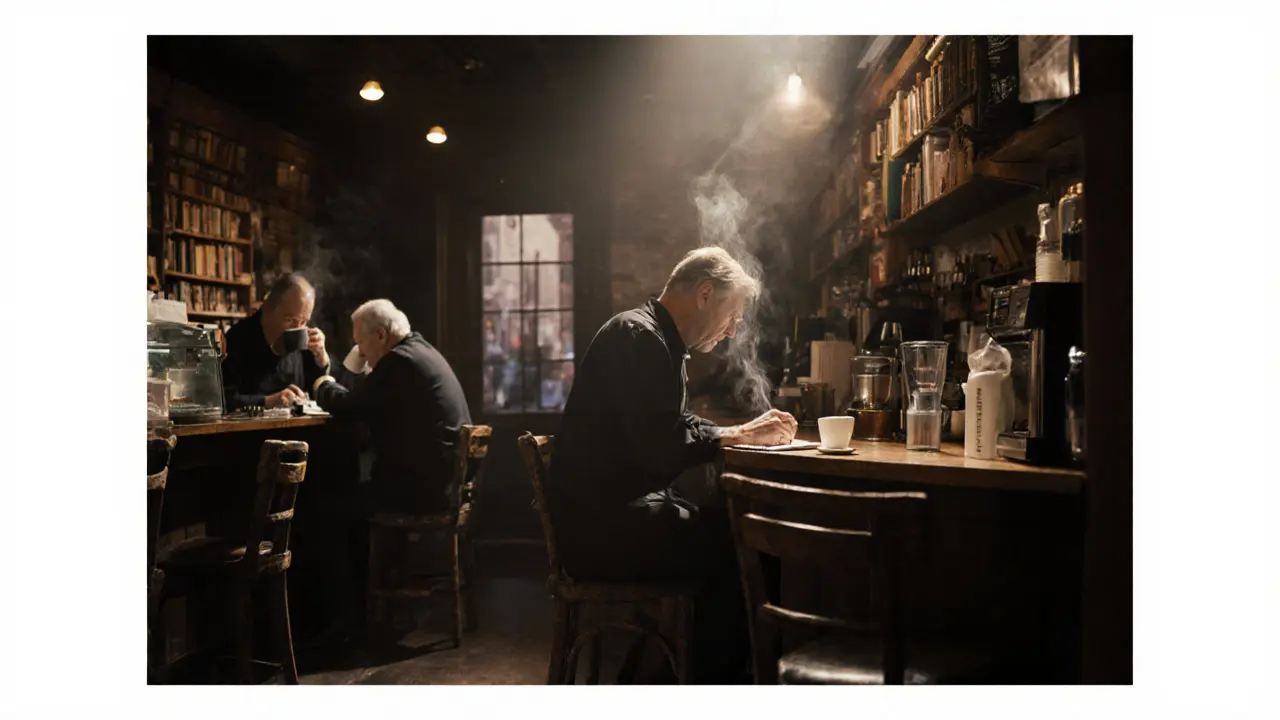
Quiet Nightlife vs. Club Nightlife in London
| Aspect | Quiet Nightlife | Club Nightlife |
|---|---|---|
| Atmosphere | Calm, intimate, thoughtful | Loud, energetic, crowded |
| Music | Live jazz, vinyl records, silence | EDM, hip-hop, bass-heavy |
| Price per drink | £12-£18 | £10-£15 (but you’ll need 3+) |
| Time spent | 2-5 hours | 1-3 hours |
| Aftermath | Relaxed, thoughtful, refreshed | Tired, hungover, overwhelmed |
| Best for | Conversations, reflection, slow nights | Dancing, socializing, letting loose |
Frequently Asked Questions
Is London nightlife only for young people?
No. In fact, some of the best quiet bars and jazz clubs are frequented by people in their 40s, 50s, and even 70s. There’s no age limit on enjoying a good conversation or a perfectly poured gin. Many venues even host monthly “slow nights” for older locals who want to unwind without the noise.
Are these quiet spots open every night?
Most are open seven days a week, but hours vary. Speakeasies like Bar Termini close around 1 a.m. on weekdays but stay open until 2 a.m. on weekends. Coffee shops like Bar Italia are open until 3 a.m. on Friday and Saturday. Always check their website or Instagram before heading out-many don’t update their Google listings.
Can I bring a friend who only likes clubs?
You can. But don’t expect them to love it right away. Quiet nightlife isn’t for everyone. Try a place like The Dukes-elegant, dim, with great music but no dancing. If they still want to leave after 20 minutes, that’s okay. Sometimes the best gift you can give someone is showing them a different way to spend the night.
Do I need to dress up?
No. Smart casual is fine. No suits required. No flip-flops, either. Think: clean jeans, a nice shirt, or a simple dress. These places value presence over performance. Your vibe matters more than your outfit.
What’s the best night to experience this side of London?
Tuesday or Wednesday. Weekends are fine, but they’re busier. On weekdays, the regulars come out. The music is softer. The conversations run deeper. You’ll feel like you’ve slipped into a secret that only a few know.
Ready to Experience London Differently?
Next time you think about going out, skip the club. Skip the line. Skip the noise. Instead, walk down a side street. Find a door with no sign. Push it open. Sit down. Order something slow. Listen. Talk. Or don’t talk at all.
That’s London nightlife beyond the party. And it’s waiting for you-quietly, patiently, beautifully.


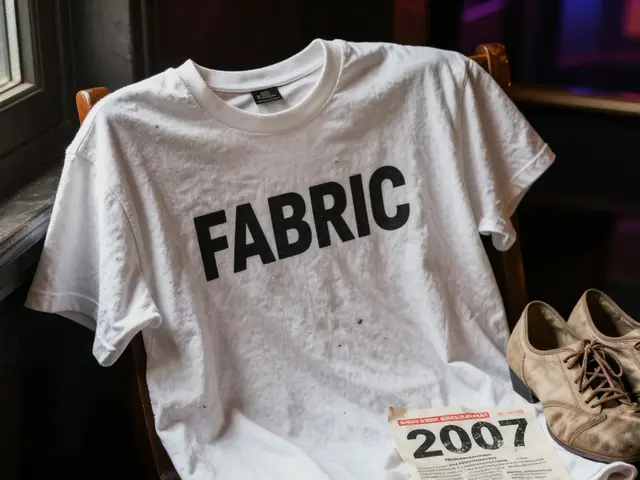
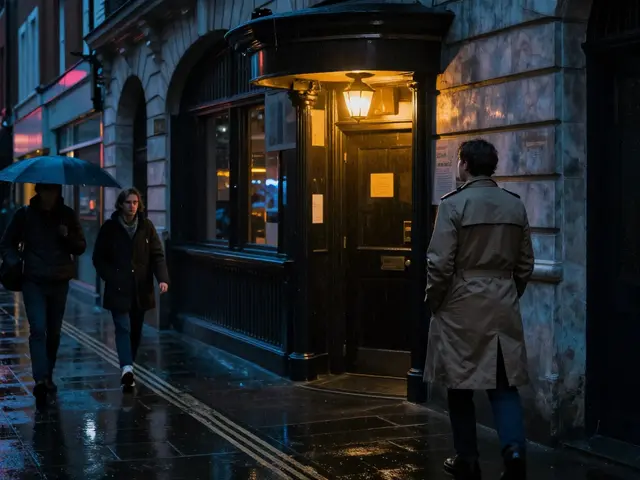
10 Comments
Finally-someone gets it! The real London isn't in the clubs, it's in the 2 a.m. silence where the gin is poured like a ritual and the barkeep remembers your face, not your Instagram handle. This is what wellness looks like after burnout: no bass, no buzz, just presence. We need more of this in every city. Stop chasing dopamine hits and start collecting moments.
/p>While I find the sentiment profoundly moving, I must respectfully note that the ontological framework of 'quiet nightlife' as a counterpoint to commercialized urban hedonism requires further epistemological grounding. Are we not, in fact, romanticizing scarcity? The closure of independent venues is not merely a cultural loss-it is the inevitable outcome of neoliberal spatial commodification. That said… I did once have a 3 a.m. conversation with a poet in Clerkenwell about Heidegger and espresso. It was… transcendent.
/p>This made me cry a little. 😭 I used to work nights in NYC and I thought I knew quiet… but London? This is next level. Bar Italia at 2 a.m.? I’m booking a flight next week. You’re right-no Wi-Fi, no rush, just coffee and the hum of the fridge. That’s the kind of peace we all need. Thank you for writing this.
/p>lol u guys are overthinking this. i went to a bar in soho last month, no sign, just a guy nodding me in. i got a gin with a twist, sat there for 2 hrs, didnt talk to anyone, felt like i was in a movie. best night ever. u dont need to make it deep, just go./p>
Aditya-you’re onto something. Sometimes the magic isn’t in the analysis, it’s in the showing up. I’ve spent years chasing ‘meaningful experiences’… only to realize meaning is just a quiet corner, a warm cup, and the courage to sit still. Thank you for reminding me that simplicity is radical. And yes-I’m going to Bar Italia next Tuesday. Bring tissues.
/p>Listen. You don’t need a guidebook. You don’t need a list. You need to walk. Not with headphones. Not with your phone. Just walk. Let your feet take you. Turn left when you feel like it. Look up. See the light under a door that doesn’t have a name. That’s the rule. That’s the ritual. That’s how you find it. Now go. The city’s waiting.
/p>Oh sweet merciful chaos, another ‘quiet London’ post. 😒 You know what’s quieter than a speakeasy? My therapist’s office. But hey-free coffee at 3 a.m.? Sign me up. Also, ‘smart casual’? Bro, I wore sweatpants and a hoodie to The Dukes last week. The bartender said, ‘Nice ensemble.’ I said, ‘Thanks, I stole it from my cat.’ He poured me a double. That’s the vibe. No dress code. Just humanity. And gin.
/p>Okay but let’s be real-this whole ‘quiet nightlife’ thing is just rich people’s burnout aesthetic. £16 gin? Cash only? That’s not ‘craft,’ that’s exclusion. And don’t even get me started on ‘ask the taxi driver’-as if every cabbie isn’t just trying to survive. This post is cute, but it’s basically gentrification with a side of lavender mist. 🤷♀️
/p>Maria, you’ve got a point-accessibility matters. But I’ve seen people from all walks of life in these places: nurses on break, students with textbooks, retirees with their dogs. The cash-only thing? It’s not to exclude-it’s to keep the overhead low so the place can survive. And yes, the prices are steep… but compare it to the cost of a night out in a club: drink, cover, Uber, hangover meds. This? You get rest. You get quiet. You get soul. That’s not a luxury-it’s a necessity.
/p>Actually, you’re all missing the real issue. Ronnie Scott’s has been around since 1959, but its licensing is up for renewal next year. Bar Italia? Their lease expires in 2026. These places aren’t just ‘quiet’-they’re on life support. If you really care, stop just posting about them and start signing petitions, donating to the London Heritage Bars Fund, or even just showing up on a Tuesday and buying two drinks. Otherwise, this is just nostalgia porn. And nostalgia doesn’t pay the rent.
/p>